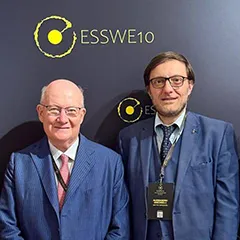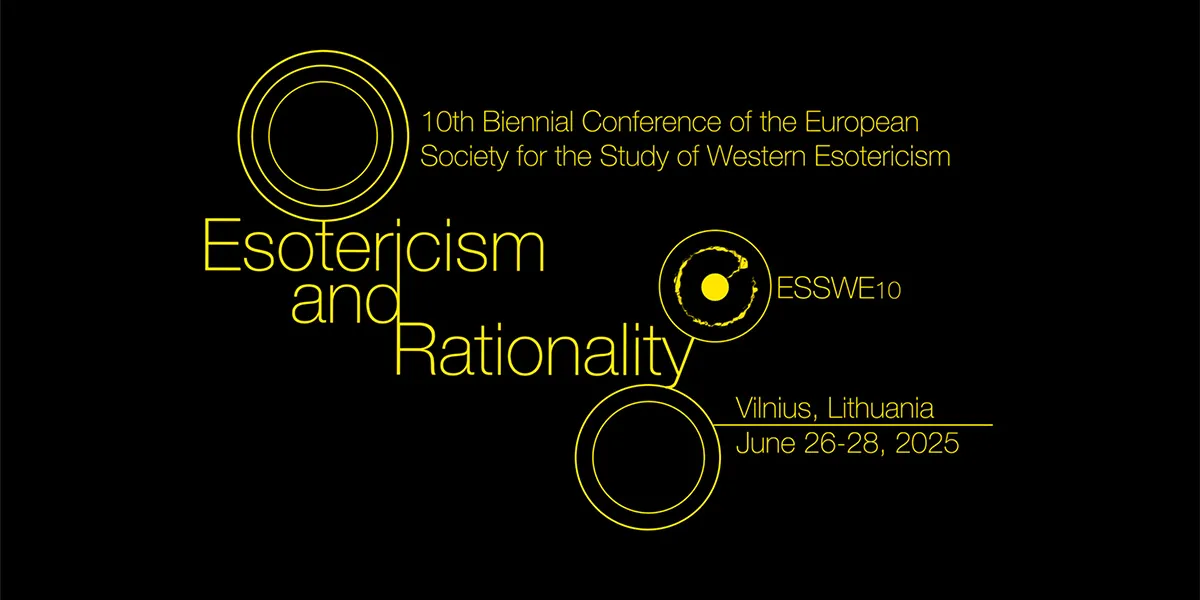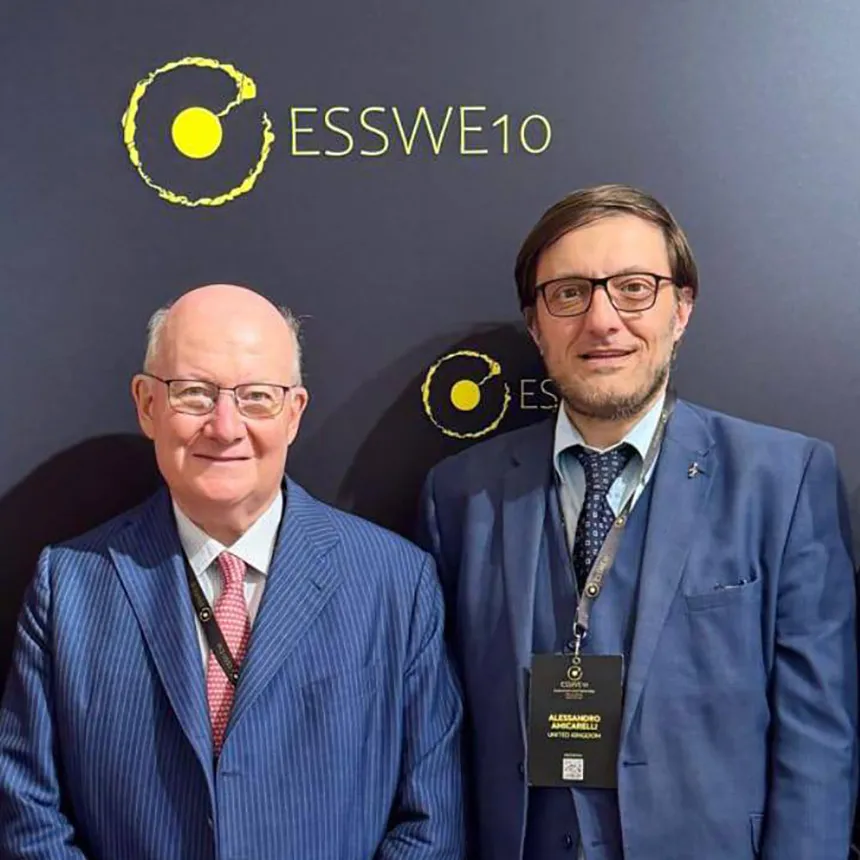
From June 26 to 28, 2025, scholars from across Europe and beyond gathered at Vilnius University’s Old Town Campus for the 10th Biennial Conference of the European Society for the Study of Western Esotericism (ESSWE). Marking the society’s 20th anniversary, this milestone event explored the theme “Esotericism and Rationality”, challenging long-held assumptions about the boundaries between mystical thought and intellectual rigor.
The full programme is available here (www.esswe10.lt)

A Theme That Provoked and United
The conference invited participants to examine how esoteric traditions — often dismissed as irrational — have historically intersected with rationalist frameworks. Topics ranged from Taoist internal alchemy and gendered rationality in modernity, to occult research in U.S. military history, reflecting the diversity and depth of the field.
Keynote presentations included:
- “Through a Dark Prism: US Military Occult Research and the Cultural History of Rationality”
- “The Other of Reason: Esotericism, Rationality, and Gender in Modernity”
- “Taoist Internal Alchemy and the Secret of the Golden Flower”
Spotlight Session: The YaHra Path Roundtable
FOB was represented by its chairman, who took part in one of the most engaging roundtables focused on the YaHra Path, a spiritual tradition that blends esoteric teachings with ritual practice. The session was chaired by Massimo Introvigne, sociologist of religion and managing director of CESNUR, and featured Alessandro Amicarelli, human rights lawyer and Chairman of the European Federation for Freedom of Belief (FOB) and Krystina Tomanova, clinical psychologist, who gave insights, from an internal perspective, on the current situation of the YahRa Path in the Czech Republic.

Massimo Introvigne and Alessandro Amicarelli
Amicarelli offered a legal and philosophical perspective on the YahRa Path movement (often informally referred to as Guru Jara Path) highlighting the challenges faced by spiritual minorities in Europe. He emphasised that freedom of belief must include the right to choose one's spiritual path — even when that path is unconventional or controversial. As he noted, “If an adult consents to a practice based on their free will, whether in a spiritual organisation or another environment, that decision should be respected, not criminalised.”
Referencing Introvigne’s earlier remarks, we can highlight a sharp contrast with France’s legal acceptance of “clubs d’échangistes”, where adults freely engage in partner-swapping. These clubs operate, in different formats, legally across Europe, and participants enter and exit by choice. Yet, when similar consensual practices are embedded within a spiritual framework — such as esoteric eroticism within the YaHra Path — they are often met with suspicion, stigma, or prosecution. This, the panel argued, reflects a troubling double standard.
Would anti-cult activists claim that adults attending such clubs are being manipulated, as they have alleged in cases involving spiritual groups? Adults are free to engage with other consenting adults as they wish. The roundtable made it unequivocally clear: the YaHra Path is open only to adults, and any act involving individuals below the legal age of consent, within any context, must be prosecuted following all legal provisions, without exception. That is not the case here.
Furthermore, it was noted that the YaHra Path has since abandoned its esoteric eroticism practices, following the unjust and biased legal process faced by its founder and his main collaborator — an ordeal shaped by anti-cult organisations, government influence, and sensationalist media campaigns. Today, those practices, openly described in books and workshops available to the public, survive only in symbolic form, expressed through ritual dances and metaphorical practices.
The roundtable concluded with a call for legal consistency and cultural respect, urging scholars and policymakers to recognise that spiritual diversity and adult autonomy are not threats, but instead expressions of freedom.
A Historic Venue for a Forward-Thinking Dialogue
Held in the heart of Vilnius — a city known for its layered spiritual and intellectual history — the conference took place in venues such as the Theatre Hall, Faculty of Philosophy, and Faculty of History, offering a symbolic setting for conversations that bridged past and present.
Collaboration and Community
Organised by ESSWE in partnership with the Lithuanian Esotericism Study Group (LESG), Vilnius University, and the Vytautas Kavolis Transdisciplinary Research Institute, the event fostered interdisciplinary dialogue among historians, philosophers, anthropologists, and cultural theorists.
The conference also served as a platform to reflect on the evolution of esotericism as an academic field, encouraging scholars to revisit foundational questions and explore new methodological paths.





